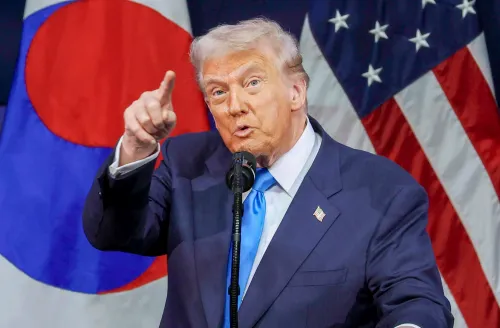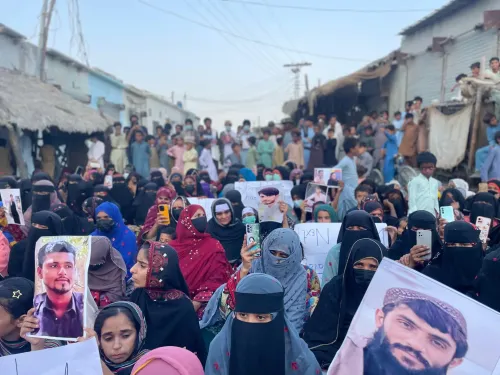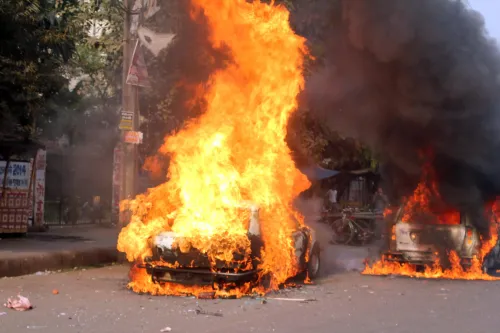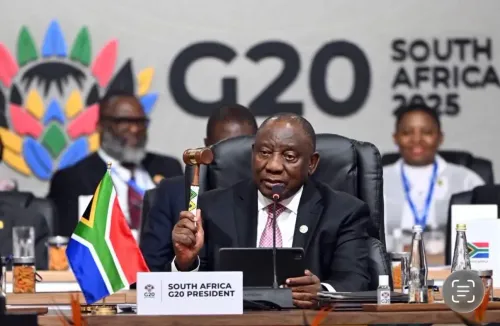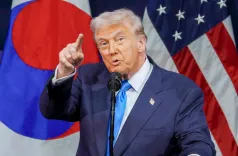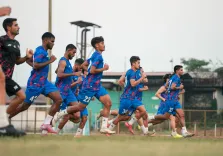Chinese Delegation Arrives in Myanmar to Oversee Ceasefire
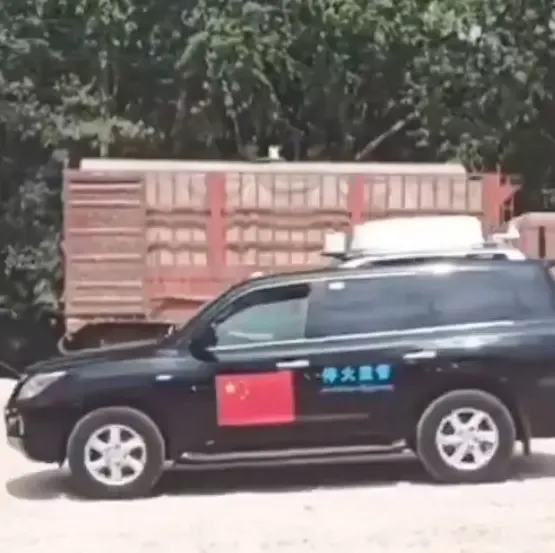
Synopsis
Key Takeaways
- Chinese delegation arrives in Lashio, Myanmar.
- Over 30 vehicles with Chinese flags spotted.
- Deng Xijun, China's Special Envoy, is part of the group.
- MNDAA's presence complicates the ceasefire situation.
- Chinese language usage by MNDAA creates challenges for locals.
Yangon, April 21 (NationPress) A delegation from China assigned to oversee the ceasefire has arrived in Lashio, the capital city of northern Shan State in Myanmar, on Monday.
Exile organization Kachin National Organisation (KNO) reported that over 30 vehicles displaying Chinese flags, presumed to carry military and governmental personnel, were spotted in the vicinity. Unverified reports suggest that the delegation includes Deng Xijun, China's Special Envoy for Asian Affairs, who had previously visited Myanmar on March 10 to meet with the State Administration Council (SAC) Chairman, Senior General Min Aung Hlaing.
KNO has stated that video evidence indicates the Chinese government's traditional stance of non-interference in the internal matters of neighboring countries has been disregarded.
Additionally, the Myanmar National Democratic Alliance Army (MNDAA) is also present in Lashio, as officials from the SAC are engaged in discussions.
It has been reported that the administration of Lashio will be returned to the SAC's local authorities once the offices reopen on April 22 following Myanmar's New Year celebrations. However, local government departments and officials in Lashio are currently lacking information.
Last September, the Myanmar Counter-Terrorism Central Committee classified the northern alliance groups, including the MNDAA, as terrorist organizations.
Per Myanmar's Constitution, effective since January 2011, the Kokang Self-Administered Zone was formed by merging Kunlong and Laukkai townships in northern Shan State. It's noteworthy that representatives from this zone have been elected to parliament through various constituencies.
The MNDAA, an ethnic armed group primarily comprised of Mandarin-speaking Han Chinese from Kokang, has declared its alliance with China.
In regions controlled by the MNDAA, Chinese is used as the official language. However, Lashio is home to diverse ethnic groups, including the Shan, Ta'ang (Palaung), Kachin, and Bamar, many of whom do not understand Chinese. The MNDAA's extensive use of Chinese in these areas is causing challenges for the local population.
Article 53 of the 2008 Myanmar Constitution addresses the Union National Coordination Committee (NUCC), which holds the specific responsibility of resolving disputes between the Union and States.
Beijing's influence over the MNDAA reflects its strategic interests in managing Myanmar's political situation.


